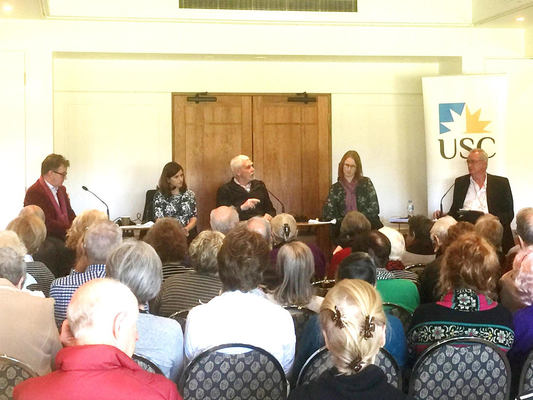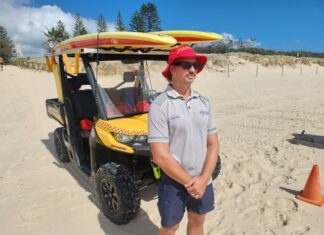
By Margaret Maccoll
Shayne Higson’s mother was 76 years old, and full of life until a brain tumour caused her to become partly paralysed, unable to move, incontinent and in terrible pain.
She had told her doctor she didn’t want to suffer in the end, but despite the best palliative care she did suffer.
“Why are they torturing me,” she asked her family.
Shayne and her two sisters adored their mother and cared for her.
“We let her down,” she said. After watching her mother die in agony Shayne became an advocate for medically assisted death.
Should the terminally ill have the right to take their own lives and how to safeguard the vulnerable were questions raised in a debate on euthanasia held on Saturday as part of the Noosa Alive festival.
A full house packed Noosa Springs Golf and Spa Resort for the event hosted by Radio National’s Paul Barclay.
On a panel alongside Shayne were past president of Dying with Dignity Victoria, surgeon Dr Rodney Syme, Anglican Archbishop The Most Reverend Dr Phillip Aspinall and lawyer Fiona Allen.
Euthanasia has long been debated, but is of heightened significant as both NSW and Victorian governments are considering laws to legalise medically assisted death.
Dr Syme said under the proposed legislation medically assisted death involved a doctor providing a person suffering an advanced incurable illness and intolerable suffering with lethal medication leaving the choice of taking it to the individual.
The individual has to be of sound mind, have consulted three separate doctors and obtained the medication under controlled circumstances involving 65 safeguards.
He said studies found up to 30 per cent of people given lethal medication had not taken it, but the control it gave them provided great support.
“Having control over the end of your life is one of the most powerful things you can do,” he said.
In Queensland assisted suicide is illegal, Fiona Allen said, and the options to people wanting to end their lives include advanced health directives which involve refusing treatment and can be decided ahead of people deteriorating to a point where they are incapable of making decisions.
Euthanasia opponent Archbishop Aspinall said medically assisted death raised questions about the value of life and might pressure people who felt a burden to their families to end their lives. He said if legalised, it would change the position of medical practitioners who had always upheld the preservation of life.






